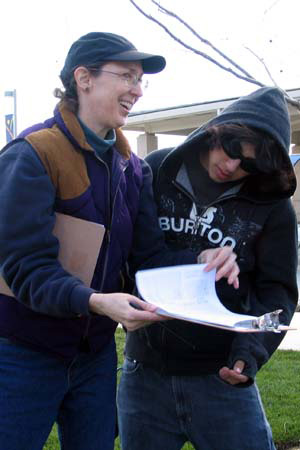

If you ask
Professor Kathleen Hullabout dating, she’ll be happy to fill you in on how it’s done - from an archaeologist’s perspective.
She writes and publishes articles on such topics as obsidian hydration dating and time perspectivism in Yosemite native demography.
Hull joined UC Merced in 2006 as assistant professor of anthropology. A native of Oakland, she was an archaeologist for six years with the National Park Service in Yosemite National Park before returning to UC Berkeley for her Ph.D. Her work in and with Yosemite has continued, though not as a member of the Park Service, for 13 years now.
UC Merced’s proximity to the people and cultures she has studied made this school a perfect match for the vibrant professor, who enjoys such diverse hobbies as whitewater rafting, hiking, sewing and reading 19th-century literature.
“I’m thrilled to be part of the University of California system and building this new campus so close to many of the places that I have lived and worked during my career,” she said. “I was living in El Portal in the late 1980s, when UC Merced was just a glimmer in planners eyes, and I have tracked the progress here since that time, hoping my dream of serving at UC Merced would finally come true.”
Hull said that most Americans draw conclusions about the hunters and gatherers native to the Sierra Nevada from popular media, a stereotypical view of horse-riding bison hunters that she hopes to correct.
For Hull, there’s no better place to look to the past than in a brand-new environment. She hopes to incorporate archaeology into the permanent landscaping on campus for outdoor exercises.
“Also, with so much open space around campus,” she said, “we may have opportunities to teach archaeological field classes in our own back yard. I’m always trying to think ahead to consider the ways that I can take advantage of the wide-open nature of the new campus.”
She also feels getting students involved as active participants in their studies is essential. For example, she recently led a mock archaeological dig on the dining commons lawn, with students recording data about the “artifacts” they found. The exercise was a big success, she said.
“Their time in college is not simply about what they learn in the classroom,” Hull said. “It’s also about what they learn about themselves through their choices, their discoveries, and their relationships with others while in the academic environment.”






